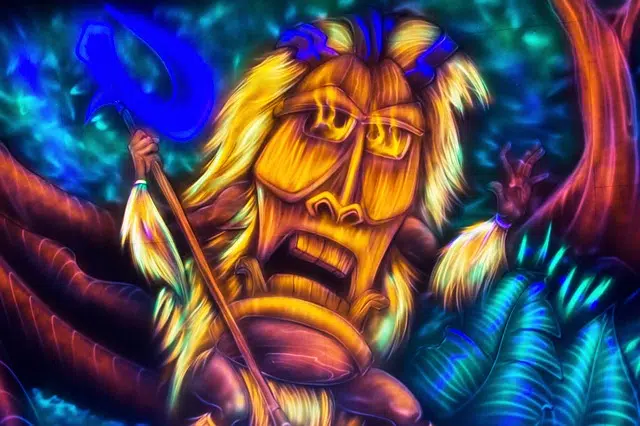
A shaman is a sorcerer.
A shaman is a witch or sorcerer : a person who is supposed to have a supernatural power that allows him to contact spirits , cure diseases, predict the future or influence weather conditions, among other issues.
Shamans, therefore, can alter reality through mechanisms that do not respond to the logic of nature. Many aboriginal peoples, throughout history , trusted the figure of this type of sorcerers.
In Africa, Asia, Oceania and America this term is used to designate the person who has the aforementioned characteristics, especially in societies dedicated to hunting and gathering. It was also used in some prehistoric cultures on the European continent . Regarding hunting, in certain parts of the world it is believed that shamans can perceive the best place to obtain prey and even modify weather factors to facilitate the task.
Origin of the concept
Regarding the etymology of the term "shaman" there is more than one interpretation. Some point out that it is a derivative of the noun shamán in the Siberian language called tungu, which can be translated as "he who knows ", and that it is related to the verb "know", which in this case would be sha .
However, other scholars believe that the meaning is close to "to work with fire and heat, to burn or heat"; In this context, when used in reference to a person it can be understood as "someone capable of transforming energy", and this leads us to what was expressed in the previous paragraphs. Those who support this interpretation of the word "shaman" believe that it should be translated as "person who knows ecstasy", since these people are distinguished precisely by ecstatic experiences.

Shamans are very important in Andean towns.
Functions of a shaman
A subject becomes a shaman by inheritance , by divine choice or through certain initiation rituals . To fulfill their functions in the community, shamans sometimes resort to the consumption of hallucinogenic substances that alter their state of consciousness.
The system of beliefs and practices linked to shamans is called shamanism . The scope of shamanism varies according to each culture .
Beyond the differences, it can be said that all shamans have the ability to interact with spirits , which can be evil or good. In his communication and dealing with these spirits, the shaman can cure those evils caused by evil spirits. The shaman, on the other hand, may enter a trance (through the consumption of hallucinogens or another method) to have visions.
The importance of wisdom
The role of shamans in communities revolves around the possession of wisdom, knowledge that transcends time and space and that, as can be deduced from what has been explained so far, is transmitted from generation to generation. In other words, the shaman has access to a plane in which experiences are shared to enrich the living with the knowledge acquired in the past, but also so that they can share it among themselves and elevate themselves spiritually.
Shamans can establish communications with spirits with different objectives, and one of them is to repair the mistakes made by the members of the communities in which they share their skills. In this way, they are able to recover harmony between the human being, the material world and their own spiritual world.
The shaman in the Western world
In the Western world, there are individuals who call themselves shamans and who carry out shamanistic practices. They present themselves as possessing special knowledge and powers that allow them to help people.
It is important to mention that many times these pseudo-shamans serve in offices and charge for their services as if they were doctors, psychologists or other professionals.
